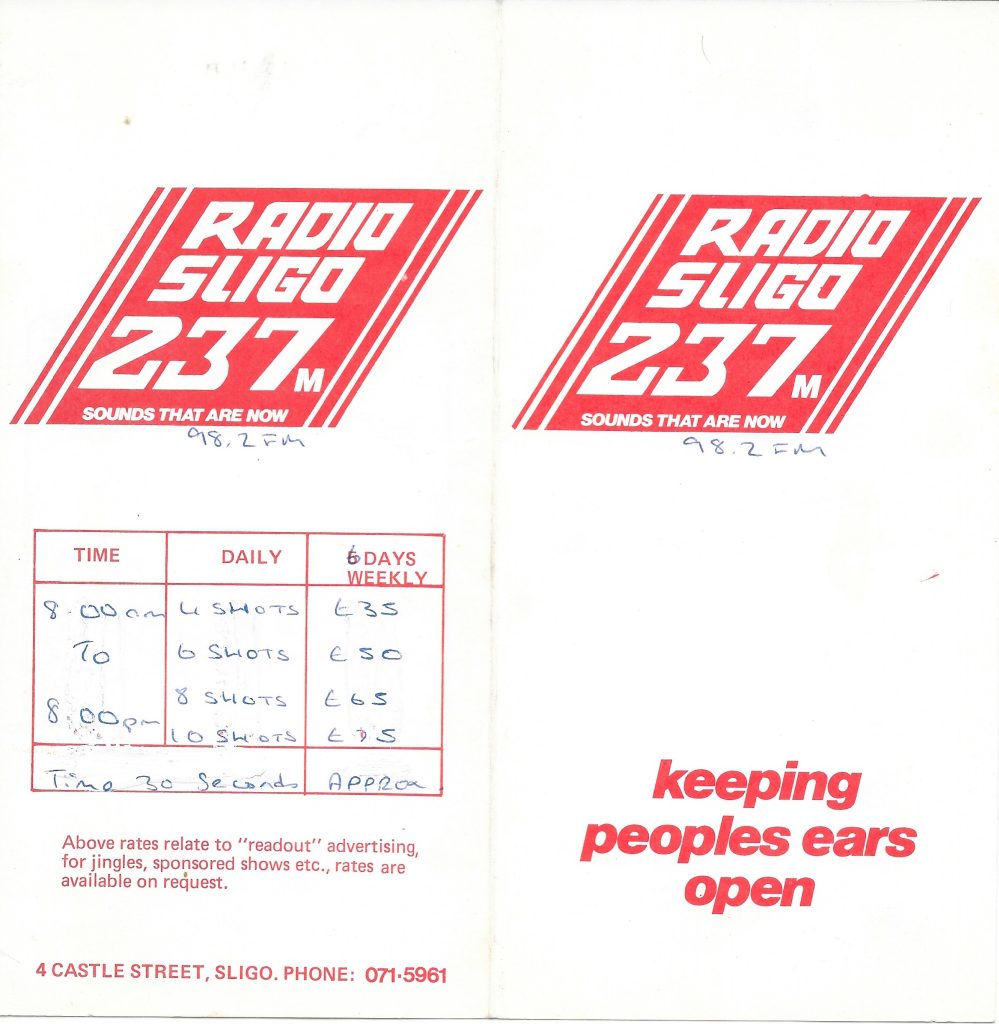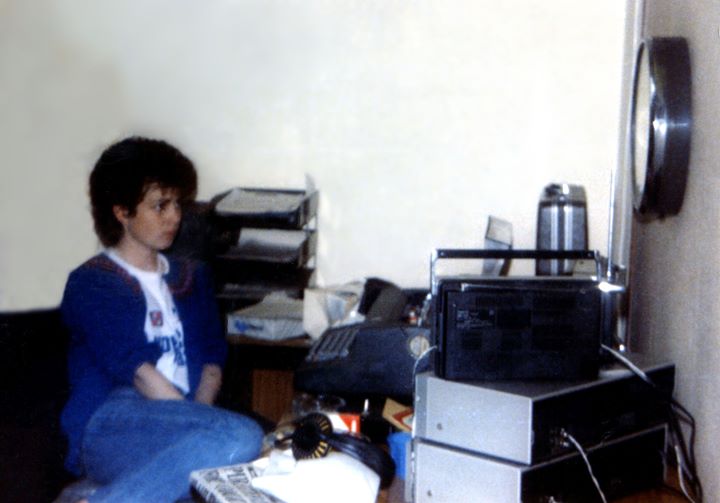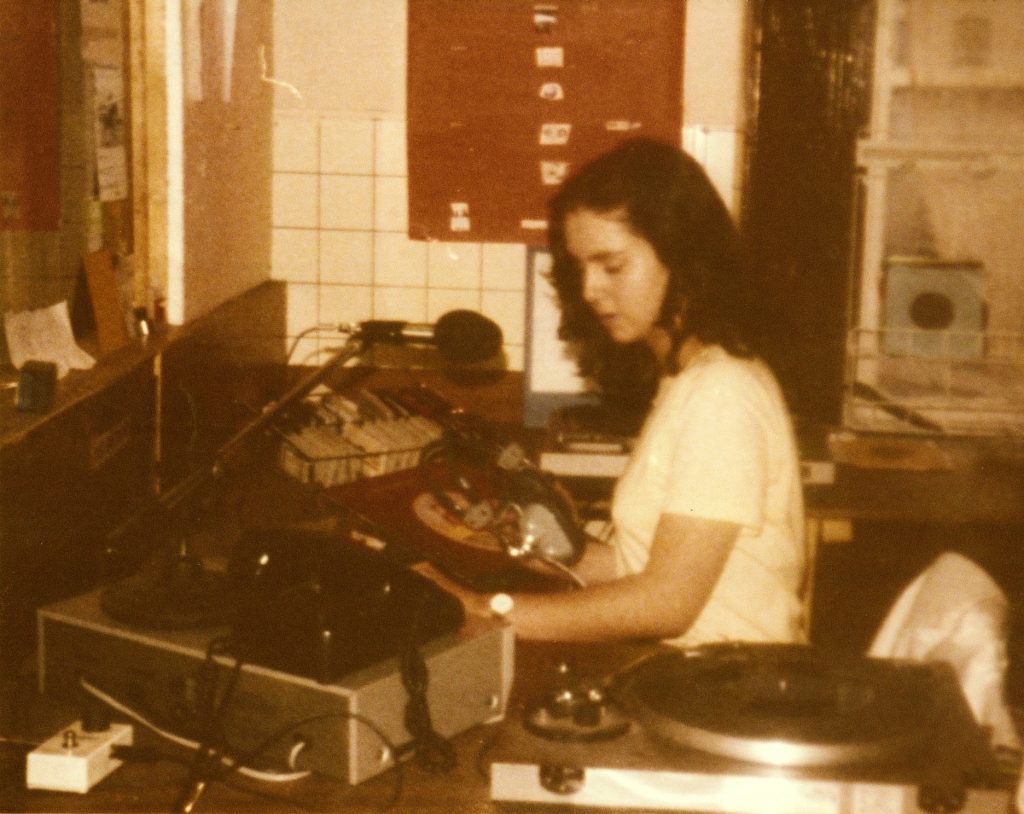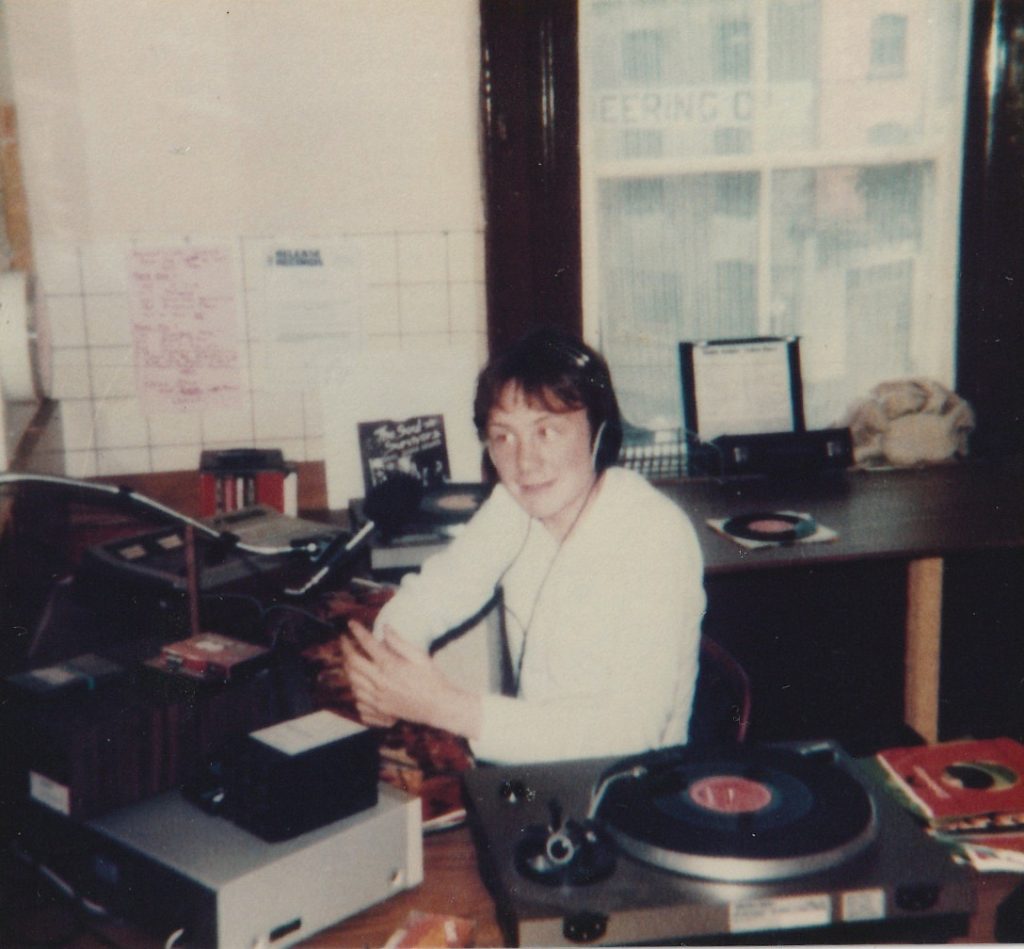Podcast: Play in new window | Download

This is an unusual recording that underlines the volatile and sometimes dramatic nature of pirate radio in Irish during the 1980s. It is of a test transmission by Radio Sligo from February 1984, just 10 days after the station was wrecked by a disgruntled former DJ who would go on to be jailed for the incident. The Sligo Champion of 17th February 1984 reported that the former DJ was charged with causing over £1,500 worth of damage to equipment and of stealing nearly £1,300 worth of property, including the FM transmitter. The damage and theft occurred after the intruder broke into the station on the night of 8th and 9th of February following a dispute over pay which had led him to leave Radio Sligo. The Sligo Champion reported on 23rd November that the former DJ was sentenced to 6 months’ imprisonment for the incident.
This strange recording contains references to vandals and bandits, which no doubt refer to the attack just over a week before, and it seems that this is the first time that Radio Sligo returned to the air after losing its equipment and FM transmitter. The address of 4, Castle Street and a telephone number are given out and the unidentified presenters announce that the station will return the following day. There were a number of pirates called Radio Sligo in the 1970s and 1980s but this version began in 1981 and continued to be logged until September 1984, so it seems that the station returned to the airwaves for a number of months after the attack.
The tape was made from 1260 kHz, announcing 237 metres, on 18th February 1984 and is courtesy of Ian Biggar.





